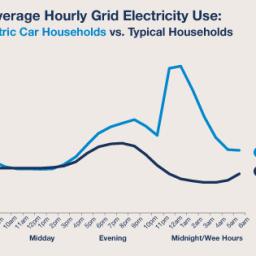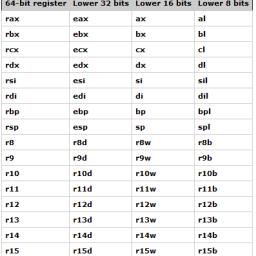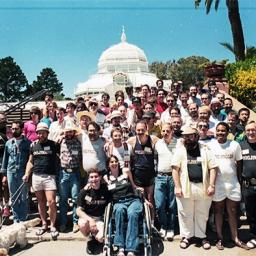
The
Samsung Galaxy Note 3 is probably the most well-known example of what we now call
phablets: half phone, half tablet. They're criticized for being too big to hold comfortably as a phone, too small to be a usable tablet with a screen large enough to watch media or read ebooks.
So why are they getting to be so popular? From Gigaom:
In less than three years, "phablets" have gone from a laughable name to the fastest growing handheld segment and they're not done yet. Look for nearly 200 million shipments this year alone as consumers see the value in a larger screen with voice capabilities. ... This year alone, [research firm IDC] thinks phablet shipments will rise 209.6 percent from last year alone with 174.9 million big-screened phones shipping in 2014. Part of this year's growth would be boosted by the introduction of a 5.5-inch Apple iPhone, widely expected to launch next week. In 2018, IDC figures 592.9 phablets will ship, accounting for 24.4 percent of all connected devices that year (connected devices include traditional smartphones, tablets, laptops and desktops).
[Ed. note: I've got the Note 3 and love it.]
Alan Jacobs is Distinguished Professor of the Humanities in the Honors Program of Baylor University and the author, most recently, of The "Book of Common Prayer": A Biography and The Pleasures of Reading in an Age of Distraction. And
he's written a good essay on why Twitter isn't fun anymore.
As long as I've been on Twitter (I started in March 2007) people have been complaining about Twitter. But recently things have changed. The complaints have increased in frequency and intensity, and now are coming more often from especially thoughtful and constructive users of the platform. There is an air of defeat about these complaints now, an almost palpable giving-up. For many of the really smart people on Twitter, it's over. Not in the sense that they'll quit using it altogether; but some of what was best about Twitter - primarily the experience of discovery - is now pretty clearly a thing of the past.
This is a bit more than your usual rant about Twitter and whether or not it's
jumped the shark. It's a conversation about a communications platform whose usefulness has changed as it has gotten more popular.
If you like this article, why not retweet it?
Call it wistful nostalgia, perhaps, but this guy isn't alone in
recalling fondly how much you could do with so little on 8 bit BASIC machines.
The little language that fueled the home computer revolution has been long buried beneath an avalanche of derision, or at least disregarded as a relic from primitive times. That's too bad, because while the language itself has serious shortcomings, the overall 8-bit BASIC experience has high points that are worth remembering.
It's hard to separate the language and the computers it ran it on; flipping the power switch, even without a disk drive attached, resulted in a BASIC prompt. ... There's a small detail that I skipped over: entering a multi-line program on a computer in a department store. Without starting an external editor. Without creating a file to be later loaded into the BASIC interpreter (which wasn't possible without a floppy drive).
Yes, what we do with computers is so much more complex now. But I do miss getting a working machine less than 1 second after turning on the on switch. I suspect I'm not alone.
 By day:
By day: electric vehicles are taking the world by storm: their sales are doubling every year, their fuel efficiency is off the charts, and some of them can even accelerate from 0-60 mph about as fast as you can say Elon Musk.
By night: the electric vehicle (EV) community continues to make waves. While you are in bed dreaming about how some day you too might own an electric car, many EV owners are doing something dramatic; something unusual; something that is reshaping the energy landscape.
They are using gobs of electricity.Read on for some great statistics and graphs. Check out the consumption spike that occurs after dinner.

Techcrunch is onto a mystery that should be no surprise to anyone who uses these things on a daily basis:
tablet sales are waning, while sales of computers are actually rebounding. Author and former CIO Peter Yared has the solution:
Businesses Need Super Tablets.
As the former CIO at CBS Interactive, I would have bought such super tablets in droves for our employees, the vast majority of whom primarily use only a web browser and Microsoft Office. There will of course always be power users such as developers and video editors that require a full-fledged PC. A souped-up tablet would indeed garner corporate sales, as Tim Cook would like for the iPad " but only at the expense of MacBooks.
The cost of managing PCs in an enterprise are enormous, with Gartner estimating that the total cost of ownership for a notebook computer can be as high as $9,000. PCs are expensive, prone to failure, easy to break and magnets for viruses and malware. After just a bit of use, many PCs are susceptible to constant freezes and crashes.
What say the Pipedot faithful: Is this just a twist in the business cycle? Would a super-tablet convince you to dust off the credit card? Or is TechCrunch just grasping at straws?
I personally have to manage upwards of 180 passwords on a regular basis and lots of folks deal with more than that. Sure, you can simplify by reusing passwords, but common sense says that's a bad idea. But better systems inevitable require you manage them in a password app or equivalent, which opens another vulnerability, as cracking that data store can net a crook your entire password collection. Clearly, there's progress to be made here.
The reported theft of 1.2 billion email passwords by Russian hackers earlier this month was just the latest in a long string of major password security breaches that have led some people to wonder if the use of passwords should be abandoned.
But given recent breaches of systems and so on, the BBC is asking the inevitable question, which is
has the flawed password system finally reached its end, and if so, what will replace it? Check out their review of alternatives, including digital portraits, voice recognition, and more.
What about Pipedotters: how do you manage your passwords, and which direction makes sense for this not-evolving-fast-enough technology?

We're getting there, slowly. There's a new range of smartwatch in town, and they're getting better and more attractive. In the words of the Motley Fool financial blog,
Samsung and LG have upped the ante on smartwatches.
Here's Samsung's new Gear S:
Their latest watch is the Samsung Gear S, and it's one of the only smartwatches on the market that sports 3G connectivity. This allows it to function on its own without having to be forever tethered to a smartphone to access notifications and other content.
The other unique feature of the Gear S is its 2" curved OLED display with a resolution of 320x480. Samsung believes that a convex display allows for a more ergonomic and comfortable smartwatch. With its curved rectangular display the form factor of the Gear S is like a cross between fitness bands and smartwatches.
LG has released a new one too, and it's round and surprisingly traditional looking.
The G Watch R's circular touchscreen measures 1.3 inches versus the G Watch's rectangular 1.65-inch screen. The G Watch R's display has a higher resolution (320 i- 320 pixels) compared with the G Watch's (280 i- 280 pixels). That means images viewed on the G Watch R should look much sharper than those viewed on the standard G Watch. The G Watch R also uses plastic OLED display technology rather than the LCD technology used with the G Watch. As a result, LG says, the G Watch R will be easier to read in direct sunlight.
With so many models and so many new features, and yet so many missing features, the tech press is already jaded. Check out TechRadar,
who asks, "Does anybody even care anymore?" while simultaneously admitting, err,
they do.
[Ed. note: I'm definitely in the market, and they're getting closer to making me reach for my wallet!]
Hoping we'll do two short polls again this week. Here's the first one:
We're doing lots of articles focusing on computer science, hardware, gadgets, software, but there's room for growth in the sciences. But which ones?
This is a borda poll, so number the fields in your preference, where 1 is the scientific field you'd be most likely to click on, and 10 is the field you'd be least likely. We'll see which fields float to the top, and you'll likely see more articles from those fields in the future (unless you choose numerology, in which case I'm outta here). I've got 250+ feeds in my RSS reader now. Let's see whose articles are going to make it into the fabric of Pipedot!
The poll is on the right side of the home page. Happy clicking!

If you're interested in understanding how the 64 bit processor works by programming for it, have a look at the
"Code as Art" blog (0xax.blogspot.com), where a guy recounts his experiences learning to program in 64 bit assembly.
section .data
msg db "hello, world!"
section .text
global _start
_start:
mov rax, 1
mov rdi, 1
mov rsi, msg
mov rdx, 13
syscall
mov rax, 60
mov rdi, 0
syscall
So we know that sys_write syscall takes three arguments and has number one in syscall table. Let's look again to our hello world implementation. We put 1 to rax register, it means that we will use sys_write system call. In next line we put 1 to rdi register, it will be first argument of sys_write, 1 - standard output. Than we store pointer to msg at rsi register, it will be second buf argument for sys_write. And than we pass the last (third) parameter (length of string) to rdx, it will be third argument of sys_write. Now we have all arguments of sys_write and we can call it with syscall function at 11 line. Ok, we printed "Hello world" string, now need to do correctly exit from program. We pass 60 to rax register, 60 is a number of exit syscall. And pass also 0 to rdi register, it will be error code, so with 0 our program must exit successfully. That's all for "Hello world". Quite simple :)

Slate is running an interesting piece called
"The First Gay Space on the Internet". But it's only marginally about homosexuality; it's really a look at how people use the Internet to meet, exchange opinions, and discuss things of interest. And that makes it relevant even today.
Many newsgroups were purely informational, useful for technical discussions or sharing of news or jokes or porn. But soc.motss was genuinely a new kind of community, a diverse set of people who felt at home and most like themselves on the Net, and who had discussions there that they couldn't have anywhere else. Before Facebook preferred status updates to long posts and Twitter reduced the size of a rebuttal to 140 characters, soc.motss proved that online discourse was indeed compatible with open-mindedness, subtlety, and civility.
The article goes back to a time when bandwidth was limited and expensive, and people took a long time to compose and write down their thoughts before posting. It points out early newsreaders were unthreaded, so any newsgroup was bound to have more readers than contributors. The Internet has come a long way from then, but the long, written form is in decline, and quick, heat-of-the-moment posts or diatribes are more the norm.
If you agree, click the "like" button and then move on.
 The Samsung Galaxy Note 3 is probably the most well-known example of what we now call phablets: half phone, half tablet. They're criticized for being too big to hold comfortably as a phone, too small to be a usable tablet with a screen large enough to watch media or read ebooks.
The Samsung Galaxy Note 3 is probably the most well-known example of what we now call phablets: half phone, half tablet. They're criticized for being too big to hold comfortably as a phone, too small to be a usable tablet with a screen large enough to watch media or read ebooks.



